Did you know one out of four pregnant women in the US is chronically dehydrated? Multiple studies estimate dehydration among pregnant women in the US to be around 25-30%! These significant numbers make it important to understand the causes and effects of dehydration for pregnant women and their developing babies. Read on to get an insight into why optimal hydration takes on greater importance during pregnancy.
Why are pregnant women more susceptible to dehydration?
A woman’s body goes through a multitude of changes during pregnancy, many of which directly impact her hydration needs.
During pregnancy, blood volume increases by about 40-50%, which increases the body’s hydration demands. Also, the amniotic sac needs optimal water intake to maintain a healthy environment and provide nutrients for the growing baby. Unfortunately, pregnant women may also experience fluid loss due to morning sickness and vomiting.
As the level of progesterone increases as women progress in their pregnancy, their kidney functioning changes, and urine production increases. Hormonal changes during this period can raise a woman’s basal body temperature, which can increase sweating, which, in turn, can result in fluid loss. An increase in hunger levels, food intake, and energy needs also requires a greater water intake as it is vital for digestion, absorption, and circulation of nutrients.
All of these bodily changes demand an increase in hydration. This also explains why pregnant women are at higher risk of being dehydrated.
How does dehydration during pregnancy affect the mother and the developing baby?
A study published on the NIH website and other reputed studies lists the effects of dehydration on the mom and the growing baby.
- Impacts fetal growth - Dehydration can impact the delivery and absorption of nutrients and oxygen in the fetus, negatively affecting fetal development, including weight and length of the baby and head and chest circumference.
- Preterm labor - Studies have shown that dehydration during pregnancy can lead to miscarriages, preterm births, and even fetal growth defects.
- Low amniotic fluid volume - Low water intake is directly related to lower amniotic fluid index or AFI levels. Low AFI levels are linked to insufficient fetal growth and development. Inadequate amniotic fluid can restrict the movement of the baby, which in turn increases the risk of significant cord pressure and, subsequently, the chances of hypoxia.
- Increased risk of diabetes - Dehydration is linked to an increased risk of developing gestational diabetes in pregnant women. This is because dehydration can result in a reduction of blood volume and an increase in blood viscosity, which affects the ability of the body to regulate blood sugar levels.
- Increased incidence of UTIs - Dehydration is linked with an increased risk of UTI in pregnant women.
- Headaches and dizziness - Insufficient water consumption can lead to headaches, dizziness, tiredness, and weakness in the mother-to-be. Proper hydration is a major factor in battling the fatigue many pregnant women feel.
- Constipation - Less intake of water and other liquids can exacerbate constipation, a problem that many pregnant women face due to changes in hormonal levels.
How can you stay hydrated during pregnancy?
With many pregnant women not meeting their hydration goals and given the severe consequences of dehydration, hydration should be a top priority as mothers-to-be go through their first, second, and third trimesters. Smart water bottles such as HidrateSpark help busy and soon-to-be moms keep track of their hydration targets and meet them with ease.
- Customize your hydration goal - Allow the HidrateSpark app to calculate a personalized hydration goal based on height, weight, activity level, and more, or set a manual goal for yourself.
- Create a tailor-made schedule and set reminders - Set a hydration goal and a schedule that works for your lifestyle. For example, teachers and nurses may need to drink less during work to reduce bathroom breaks, but then should compensate with more water when they are off the clock. Get regular reminders that will help you achieve your customized water intake targets.
- SipSense technology - Take the hassle out of inputting data with HidrateSpark’s advanced Sipsense technology, which can track precisely how much water you consume.
- Syncs to your health app - Ensure that you meet your daily, weekly, and monthly hydration goals by keeping track of your water consumption on your fitness trackers and health apps such as Fitbit, Google Fit, Apple Watch, and other popular apps.
Stay on top of your hydration goals and give yourself and your growing baby a healthy environment with HidrateSpark. Explore the range of smart water bottles and pick one that best suits your lifestyle.
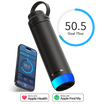
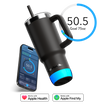
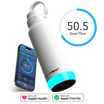

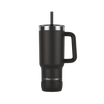

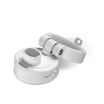

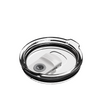
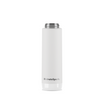
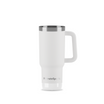
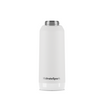



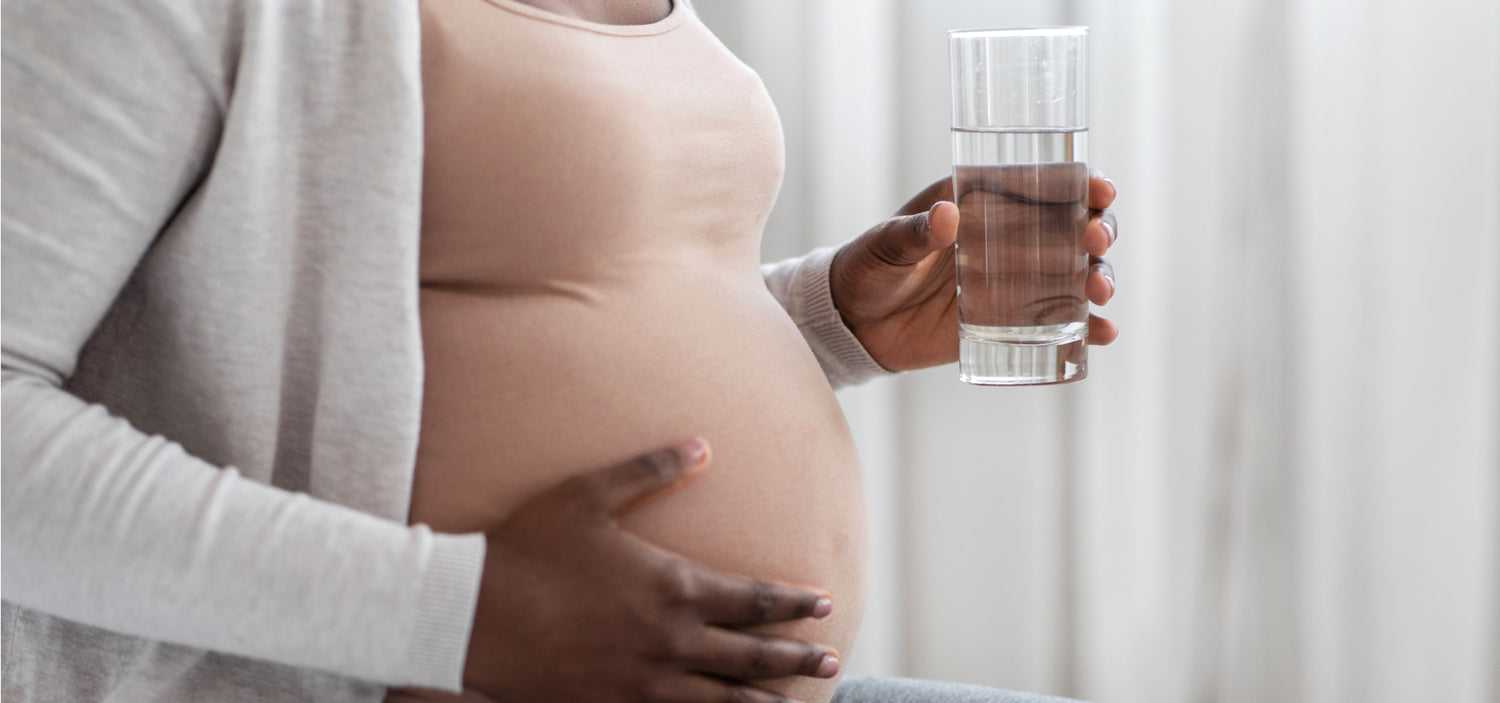
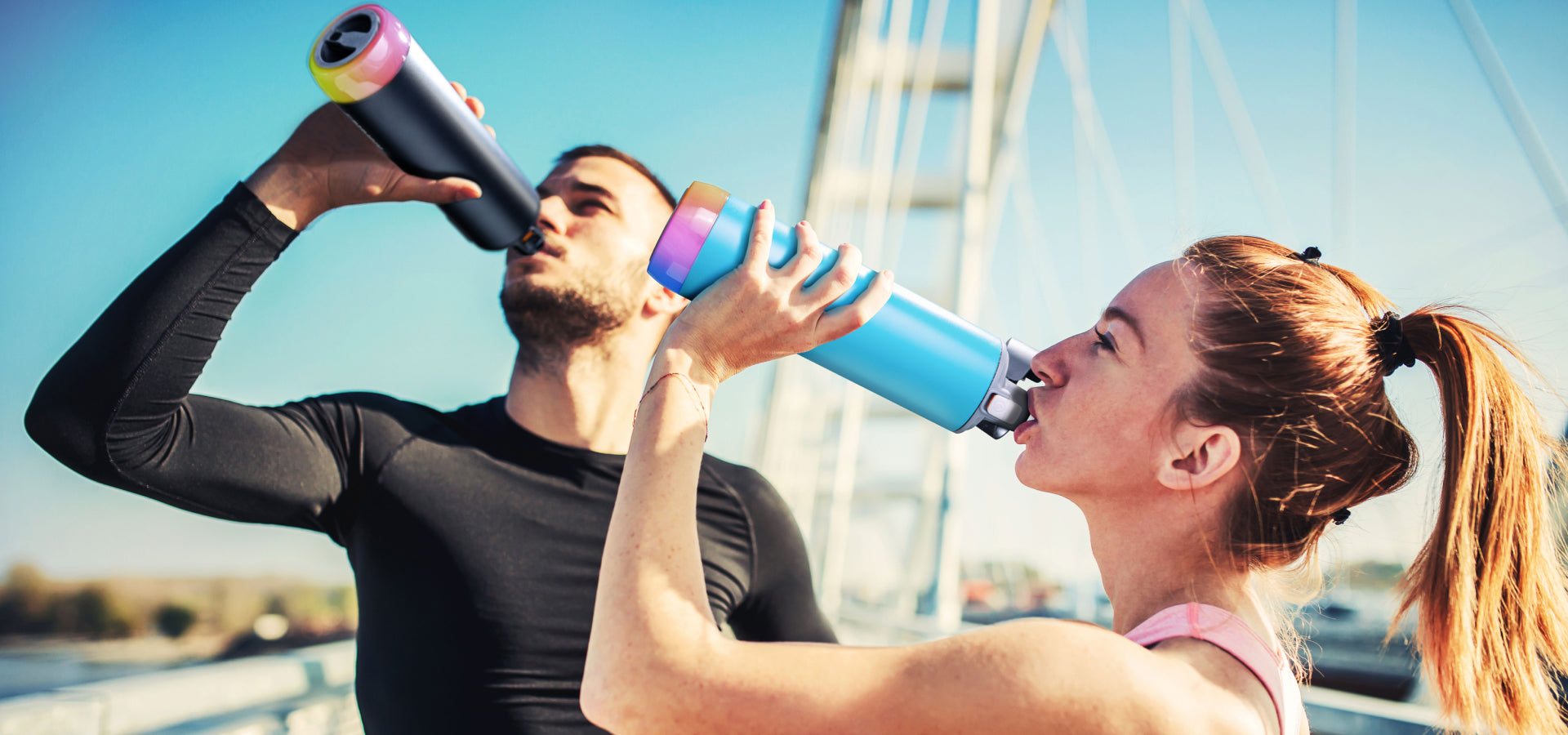

Leave a comment
This site is protected by hCaptcha and the hCaptcha Privacy Policy and Terms of Service apply.